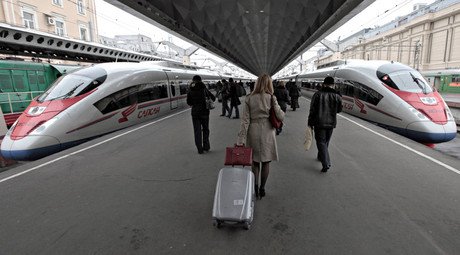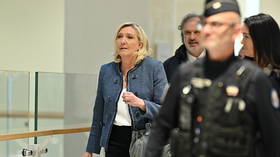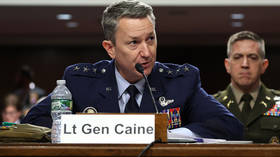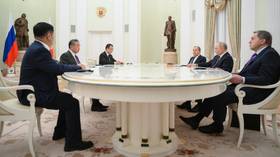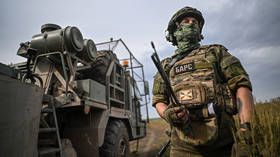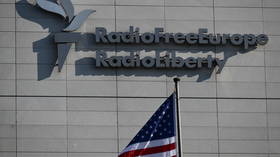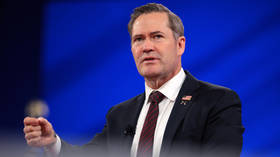Does anything good ever happen in Russia?
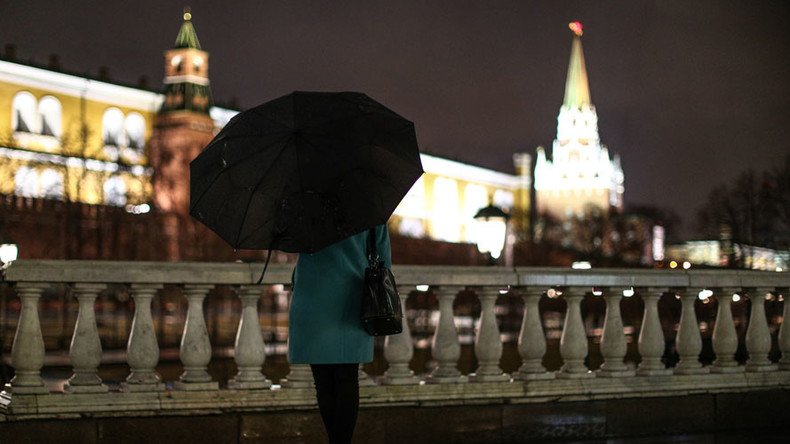
Lena is traveling by train from Berlin to Moscow. She’s spent the previous six weeks traveling around Europe to eight different countries. Now, she’s having a Caesar salad and a Baltika beer somewhere between Poland and Minsk. And she’s angry.
“Everywhere I went, as soon as I mentioned Russia, it was all negative. I am learning French. So, I’m talking to this middle-aged woman in Lyon and she’s like: ‘Oh, Russia has this problem, of course, and it’s Putin,’” she says.
“And I’m going, ‘what problem exactly?’ The woman answers: ‘Going around putting poison in people’s tea.’ It’s so crazy that I just walked away from her. Other people are asking me what’s it like living in a closed country. But Russia is not closed! More again asked me do we have food in the shops now?”
“Two days later, I was out with my friend who is studying in Nice. We met two American boys. One of them asked us, ‘does anything good ever happen in Russia?’”
Funnily enough, Dominic Basulto, an American writer, recently asked the same question in his book ‘Russophobia: How Western Media Turns Russia into the Enemy.’ Basulto’s work is based on his experiences during the unfairly maligned Sochi Olympics in 2014. Naturally, it has been completely ignored by the same media it assesses, even though Basulto is careful to massage a few egos among the press corps. Russia-focused journalists are often touchier and more prone to theatricals than prima ballerinas at the Bolshoi. For someone trained at real newspapers, with an ingrained culture of aggressive reporting, this offers endless amusement.
Anyway, both Basulto and Lena’s American boy are onto something here. If you relied on the Western media to inform you about Russia, you could be forgiven for believing that it’s a joyless hellhole. The kind of place Tom Waits and Nick Cave would design if given a blank canvas. Sadly, people who live here and have alternative views are almost completely blocked by the Western press and unable to offer a counter argument. To be sympathetic to Russia these days, or to try to understand it, is to be a “Putin stooge” or “a Kremlin shill.” Ironically, many of those dishing out that sort of slander have often never been to Russia, yet commentate on it freely.
Half truths and distortions
Lena reads English language media. She once consumed the BBC and Radio Free Europe/Radio Liberty (RFE/RL). She admits she stopped listening to both due to overwhelming negativity. As a result, Lena is shocked to discover that RFE/RL is controlled by America’s Broadcasting Board of Governors, which receives over $700 million annually from the US government. Incidentally, the BBC’s budget is in the billions of pounds.
“They don’t seem interested in the ordinary Russian. They are aimed at people like me. The one or two percent who speak English well enough to understand their content. Their Russian-language stuff is very poor. Anyway, they just bombard us with stuff about how terrible life in Russia is. They obviously hope the English-speaking, and well-traveled, elite will rise up against our government, out of embarrassment or something. It’s stupid. They’d be much smarter if they targeted us with reasons why America is so great, if it really is so. Telling us how awful our own country is makes us want to love it more,” Lena argues.
Lena’s points are valid. And they get me thinking. There now seems to be a “bad Russia” angle to everything. Take last month’s Panama Papers revelations. The paper which broke the story in Britain was the Guardian. The Ukrainian President and the UK Prime Minister’s late father were directly implicated in the scandal. Yet, who did the Guardian illustrate their initial story with? Vladimir Putin. Despite the fact that he wasn’t named at all.
The problem with the “bad Russia” theme is that the more the country is vilified in Western media, the more governments are then forced to tackle it. Even if they are chasing ghosts. The current anti-Russia sanctions are a case in point here.
A strange kind of freedom
In their hearts, EU leaders know that Ukraine is an un-reformable basket case. Top officials are surely provided with candid intelligence reports and they are fully aware that Petro Poroshenko’s regime is as bad as and probably even worse than the Viktor Yanukovich cabal it replaced. However, the establishment media refuses to tell the truth about Ukraine. Instead the narrative is one of bold Europhile reformers, thwarted by dastardly pro-Russian disrupters. Which is complete male cow excrement. Meanwhile, Kiev’s elite steal with impunity, under the protective blanket provided by the Western press.
The West’s unconditional support for Ukraine’s elite is making things worse. In practical terms, it actively discourages change. Yet, the problem here is that if EU politicians lift the sanctions, they run counter to the ‘Kiev good/Moscow bad’ narrative.
Explaining that is more complicated than maintaining the status quo. A situation that is choking certain EU trade sectors, most notably agriculture, and driving a chasm between Russia and the rest of the continent.
Another fine example are the Baltic States, comprised of Estonia, Latvia and Lithuania. Everybody with half a brain knows that Moscow will never touch them. To do so would be an attack on NATO, the world’s most powerful military alliance. Anyway, even if America stood idly by, which is very unlikely, what would Russia do with these countries? There is nothing there. Their best export for the last two decades has been their people, who have been scattered to the wind by politicians who seem to spend more time fretting about Russia than their own struggling economies. Indeed, they boast no valuable natural resources and the Baltic’s strategic value hardly trumps that of Kaliningrad, an exclave of the Russian Federation.
However, the Western media and the think tank racket have been pushing this ridiculous idea that the Baltics are in imminent danger for some years now. As a result, America has just proposed quadrupling military spending in the region. Because, after this endless propaganda, not doing something drastic would make NATO look weak.
Ship of fools
Many of the people cheer-leading “Western resolve” on Ukraine and the Baltics are self-styled “Russia experts” who pop up all over the Western media. These are the same guys who endlessly parrot on about Putin’s nefarious intentions and claim special expertise in reading his mind. This is despite a number of handicaps in their methodology. For starters, most of them have never met Putin and their usual sources are disaffected Russians, living in the West. People like Gary Kasparov and Masha Gessen, for instance. The Washington Post asking their opinion on Putin is pretty much the same as Komsomolskya Pravda basing their analysis of Barack Obama on the thoughts of Edward Snowden.
Another problem with these “gurus” is that they spend too much time analyzing what Putin may have had for his breakfast and invest too little effort in the bigger picture. There seems to be some misplaced notion that a putative Putin departure would change the Russian system and its outlook beyond recognition. This is absurd. Putin’s eventual successor is more likely to be even more hostile to the West than open to it, if his or her stance reflects Russian mainstream opinion. If it doesn’t, they will have little legitimacy.
To answer the American boy’s question. Yes, lots of good things happen in Russia. This week, for example, the Vostochnny Cosmodrome opened in the Far East region. This is especially noteworthy considering Russia is the only country currently capable of launching a human being into space.
Naturally, Western media focused on the maiden launch being delayed for 24 hours, due to safety concerns, rather than the event itself. Presumably, they'd have preferred if the rocket had exploded on the platform. That would have garnered zillions of clicks. Even then, The Guardian claimed the Russian space industry was in "crisis."
Don't worry though; the UK's intergalactic enterprises are doing great. Even though they don't exist.
Some hacks also highlighted a corruption scandal which hampered construction, without seeming to know anything about it. In fact, if they’d bothered to cover the story properly, they’d have realized the sordid affair was greeted with relish in the Far East. You see, as a result, two families which have raped and pillaged the region for years have had their domination broken. One faction is already imprisoned and the other under house arrest.
Anyhow, more importantly for me, I left my bankcard in a Moscow cafe this morning, and a kind waiter ran after me down two streets to return it. After all, it’s the little good things that count, isn’t it?
The statements, views and opinions expressed in this column are solely those of the author and do not necessarily represent those of RT.


